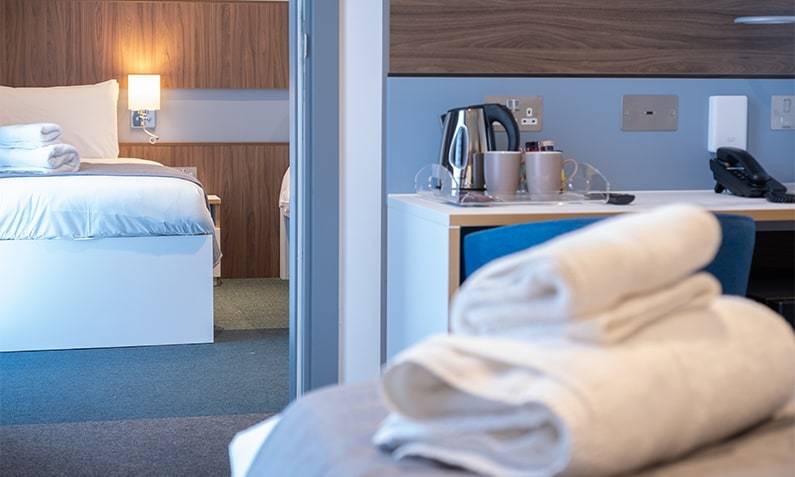Blog - Rest & relaxation

Top 5 tips for a good night's sleep
12 Nov 2018
Top 5 Tips for a good night's sleep
Despite glossy adverts, sumptuous bedding and the perception that all hotel visitors have restful nights and sweet dreams, the reality is often quite different with many people suffering with poor sleep in hotel environments. There are many causes of disturbed or interrupted sleep, not least by being away from the comfort and normality of home.
For the recreational or leisure guest, the odd night of interrupted sleep is not necessarily an issue. However, for athletes training or competing away from home, it is a very different issue. Optimal sleep on a consistent basis can significantly improve performance and, in a world where such marginal gains are the difference between winning and losing, sleep is a vital part of the preparation.
The same can also be said for those travelling on business and staying overnight in hotels. Both need to be able to perform at their best, but a night of tossing and turning in an unfamiliar environment can seriously affect their ability to do so.
The new Elite Athlete Centre and Hotel at Loughborough University has been created to maximise performance for any guest. Leading experts from a variety of fields have gathered to provide input on the design of the hotel, ensuring the very best conditions for guests during their stay. A top priority for all guests is the ability to relax, recover and sleep.
Luke Gupta, physiologist at English Institute of Sport and an expert on sleep and its effect on performance, offers the following advice to those looking for a good night’s rest...
- Try to maintain your personal sleep routine while you’re away from home as much as possible – this habitual routine will act as an important behavioural cue for sleep to readily occur.
- Be sure to take the time to unpack, set out your belongings such as your pyjamas, toilet bag, clothes for the next day etc – this can help you feel more settled in an unfamiliar bedroom.
- Take some time to familiarise yourself with the air-conditioning / heating and lighting in the room and be sure to set these to your preference prior to leaving the room for the evening in preparation for returning to sleep – coming back into a room that is dimly lit and cooler in temperature will help sleep occur more readily
- Make sure you pack any items like photos, books, blankets, and even consider taking your own pillow, and place these items around the room to help familiarise yourself with your new personal space.
- Your bed should be used for sleeping only! Activities like reading, working, or even eating in bed can make it difficult to sleep because these activities are associated with being awake – instead, use the desk space or chair for these activities.










